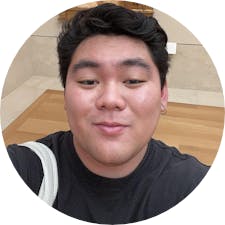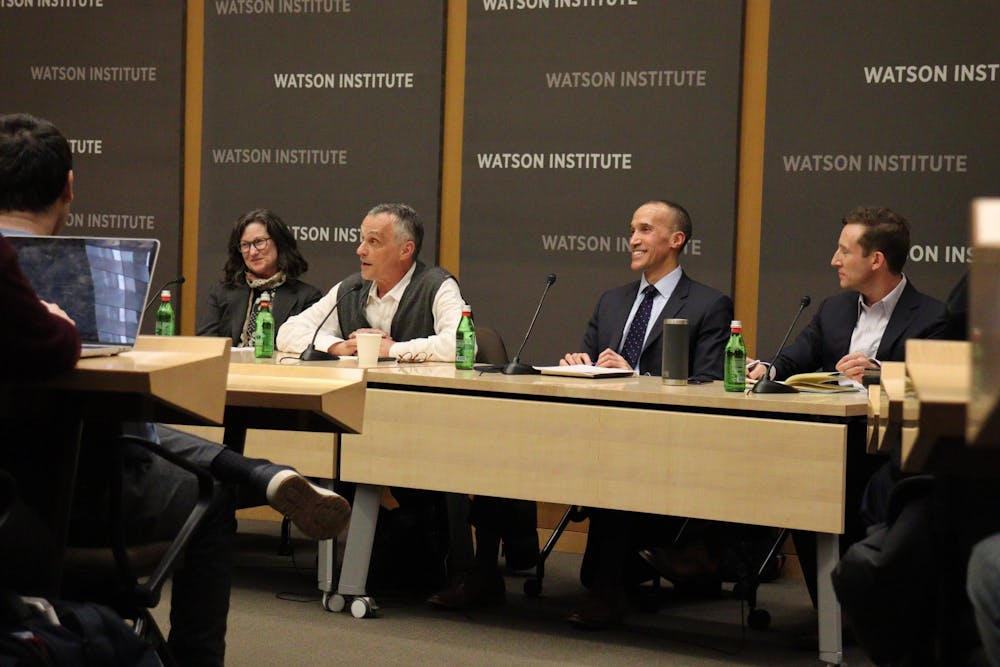The Center for Philosophy, Politics and Economics hosted a Wednesday evening event at which panelists addressed affirmative action and anti-discrimination policies in the college admissions process. Titled “After Affirmative Action: Democracy and the University,” the event constitutes another component of an ongoing national discussion of affirmative action following the Supreme Court’s 2023 ruling on race-conscious admissions.
Organized by the Center’s Democracy Project, the panel featured John Friedman, a professor of economics and international and public affairs; Logan Powell, the University’s associate provost for enrollment and dean of admission; and Michael Roth, president of Wesleyan University.
Bonnie Honig, a Democracy Project director and professor of political science and modern culture and media, moderated the panel.
Honig began the panel by explaining the rationale for the event: “to look at how universities that care about diversity and equality should respond to (the Supreme Court) decision,” Students Fair Admissions Inc. v. President & Fellows of Harvard College.
“Universities are important parts of the democratic landscape,” Honig added. “The court decision on affirmative action from the perspective of democracy and democratic theory is part of a larger struggle in the U.S. right now over education, democratic values and the limits and reach of state power.”
Honig went on to cite controversies in Virginia over critical race theory and anti-LGBTQ+ statutes in Florida, as “developments that share one goal: to cultivate mistrust in institutions of higher education.”
Powell began his portion of the panel by emphasizing the principle of “racial diversity in classrooms” as crucial for the “foundational growth of students who contribute to society.” He went on to explain the implications of the Supreme Court’s decision on the University’s admissions policies.
Powell pointed to a quote from Chief Justice John Roberts’ majority opinion in SFFA v. Harvard: “Nothing in this opinion should be construed as prohibiting universities from considering an applicant’s discussion of how race affected his or her life, be it through discrimination, inspiration or otherwise.”
“That’s what we had been doing at Brown all along … Race in and of itself was never the reason an applicant was admitted, denied (or) waitlisted,” Powell said.
Powell also highlighted the addition of new short answer essays that allow applicants to “talk about their background, their lived experience (and) experiences with inspiration, courage, leadership, etc.” These additions come as the SFFA case has eliminated the ability for admissions officers to view applicants’ selected races and ethnicities on the Common App portal, he said.
Finally, Powell lamented the impact of the decision on applicants, “who — in some cases — don't want to relive the trauma of discrimination,” he said. Applicants may “want to tell stories of hope and joy and excellence, but (could) feel compelled to talk about painful experiences” instead.
Roth discussed how Wesleyan University has attempted to “achieve diversity” in “the absence of affirmative action.” The school ended legacy admissions in July 2023, a decision Roth said was motivated by the desire “to send a signal to Black and brown students in particular that we value diversity.”
Roth highlighted a focus on supporting economically disadvantaged schools, noting Wesleyan’s partnership with the National Education Equity Foundation, “which offers credit-bearing courses in Title I high-poverty high schools,” he said.
But he also warned that “there are really good reasons to be suspicious about affirmative action.”
“It shows that places like (Wesleyan) and (Brown) do not have intellectual diversity at the level that allows us to really learn ideas,” he said. Noting Brown’s progressive-leaning student body, Roth asked, “Who is going to bring to you (the) intelligent conservative ideas and mores that may not fly in Brooklyn Heights?”
Friedman highlighted the power of admissions officers in shaping the “trajectory” of applicants’ lives. “We … are now like the gatekeepers to who gets access to this enormous boost in your life trajectory,” he said. “We need to think about who is getting that boost.”
“There’s an enormous amount of evidence about how, depending on the circumstances of your birth, there are very unequal life trajectories,” he added, noting that race and socioeconomic status are particularly relevant in determining that trajectory.
Following the opening remarks from the panelists, the event progressed into an hour-long question-and-answer session.
One audience member asked about the implications of replacing consideration of race with consideration of socioeconomic status as a method of introducing diversity.
Differences in life trajectories across racial lines persist “even when you look at people who have the same level of income or education,” Friedman responded.
“Just (to give) an example, children of Black millionaires are more likely to end up in prison at age 30 than the children of white families earning, like, $50,000 a year,” he said.
Another audience member asked how admissions policies at elite universities could put pressure on wealthier families which, they observed, tend to prefer private schools instead of the public educational system.
“Wesleyan works extra hard to find public school graduates so that we have less of a disproportionate student body from private schools,” Roth responded. “That (sends) a signal to parents — ‘well, if you want to get into Brown or Wesleyan, then you want to go to the local school, rather than to go to private school.’”
But Powell highlighted another factor: “Who made the decision for the student to go to the school?” he said. “Should we hold it against a student if a parent chose to live in a particular place or to send them to a particular school?”
“We're sensitive to that as well,” he added.
Other attendees asked about differences in educational investment between communities, the importance of intellectual diversity in admissions and the impact of affirmative action on Asian American students.
Alex Shieh ’27 attended the event because of his interest in affirmative action, as well as the different perspectives offered by the panel. “I think it’s important to … hear different perspectives to inform your own,” he said.
Shieh asked the panel about the role of Asian American students in affirmative action policies. “I think a lot of times in the affirmative action debate, there is a lot more focus on African Americans and white students,” he said. “It is important to focus on how this affects everyone.” Shieh also said he wished there were more people opposed to affirmative action represented on the panel.
Nathan Seelig ’27 found particular interest in the discussion of standardized test scores and their prediction of college success, a relationship explored in a new Opportunity Insights study led by Friedman, The Herald previously reported.
Seelig found Friedman’s point that data from “the SAT is not necessarily the means of injustice, or something that creates bias, but rather it reflects bias and injustice in society,” especially interesting, he said.
Curious about how Brown addresses “questions of meritocracy and equity,” Daniel Schiffman ’27 came to the event to learn about how admissions has shifted its policies. He also noted the panel’s focus on the issue of diversity and the various ways it applies to the admissions process.
Diversity remains at the forefront of discussions surrounding affirmative action and the future of admissions in higher education.
“We are committed, as an institution and as an office of college admission, to the values of the University,” Powell said. These values are “to build diverse classes of students — diversity as broadly defined as possible — with a focus on academic excellence.”

Tom Li was the editor-in-chief and president of The Herald's 135th editorial board. He is from Pleasanton, California and studies economics and international and public affairs. He previously served as a metro editor, covering the Health & Environment and Development & Infrastructure beats, and has worked on The Herald's copy editing, editorial page board, design and podcast teams.

Sophia Wotman is a University news editor covering activism and affinity & identity. She is a senior from Long Island, New York concentrating in political science with a focus on women’s rights. She is a jazz trumpet player, and often performs on campus and around Providence.





